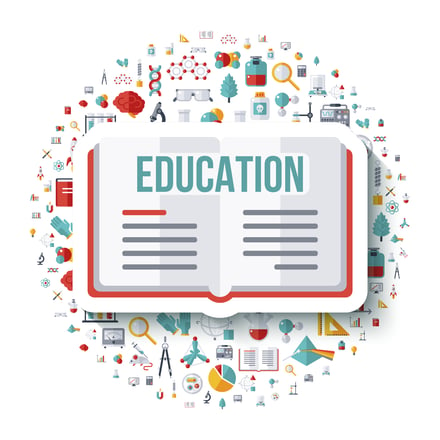Tahlea Jankoski | Published June 24, 2016

Will "siloed" or segmented curriculum soon be considered a learning model of the past? Many argue that the silo effect that has dominated education over the years needs to be eliminated, so that today's student can develop real-world skills more effectively. But it may not require a system-wide revolution. As more teachers focus on interdisciplinary studies, siloed classes may gradually become part of the past.
Integrated learning has gained renewed strength in education with the growth of STEM curriculum, among other progressive learning models. STEM not only provides more hands-on application, but it better prepares students to analyze and learn critical thinking skills that will be valuable to their future education and professional pursuits.
The formation of siloed subjects
How did education move toward siloed curriculum, when we live in such a complex world? The practice of siloeing disciplines began in an effort to simplify complex topics. A siloed discipline is taught in a dedicated classroom setting (such as a chemistry lab) where a student is taught a single topic, such as biology, physics, or chemistry. There the teacher can focus on that specific subject and students can absorb information that is relevant only to the primary topic. Siloing subjects is easier for schools, as well, because its easier to map out curriculum. But as students focus on each topic individually, they may be less proficient with the material, since they do not study complex, real-world applications or understand how interrelated subjects affect each other.
Moving forward to eliminate silos
As more educators recognize the importance of interdisciplinary curriculum, fewer students will participate in siloed subjects as they apply problem-solving skills to integrated subjects, they will be more prepared for 21-century learning and professional life, and also gain a greater motivation to learn. For example, in an integrated physics and chemistry (IPC) curriculum, the class would focus on understanding each discipline and how it correlates with the other. Students would gain a deeper understanding of how the principles of both could be applied in the real world.
How will de-siloed education influence future learning?
Integrated studies give students the opportunity to use both modern technology and social engagement to increase their understanding, as well as requiring more hands-on learning and real-word application—all of which help prepare students for further education and careers.
By learning within a curriculum that uses real-world applications, students develop a better grasp of the material as they see how the topics relate to scenarios outside of the classroom.
The conversion to de-siloed learning in the STEM disciplines will take time, but can be accomplished at a steady pace through small changes in school curriculum. De-siloed STEM learning can move teachers away from single-topic lesson plans and enable them to give students exposure to more sophisticated, integrated approaches to learning.

At the start of the school year, teachers have the chance to create a math classroom where every student feels valued...

Math manipulatives are a great way to make math more accessible for your students, especially if you know they may...

Storytelling is one of the oldest forms of communication as a way to share experiences, understand others, and...